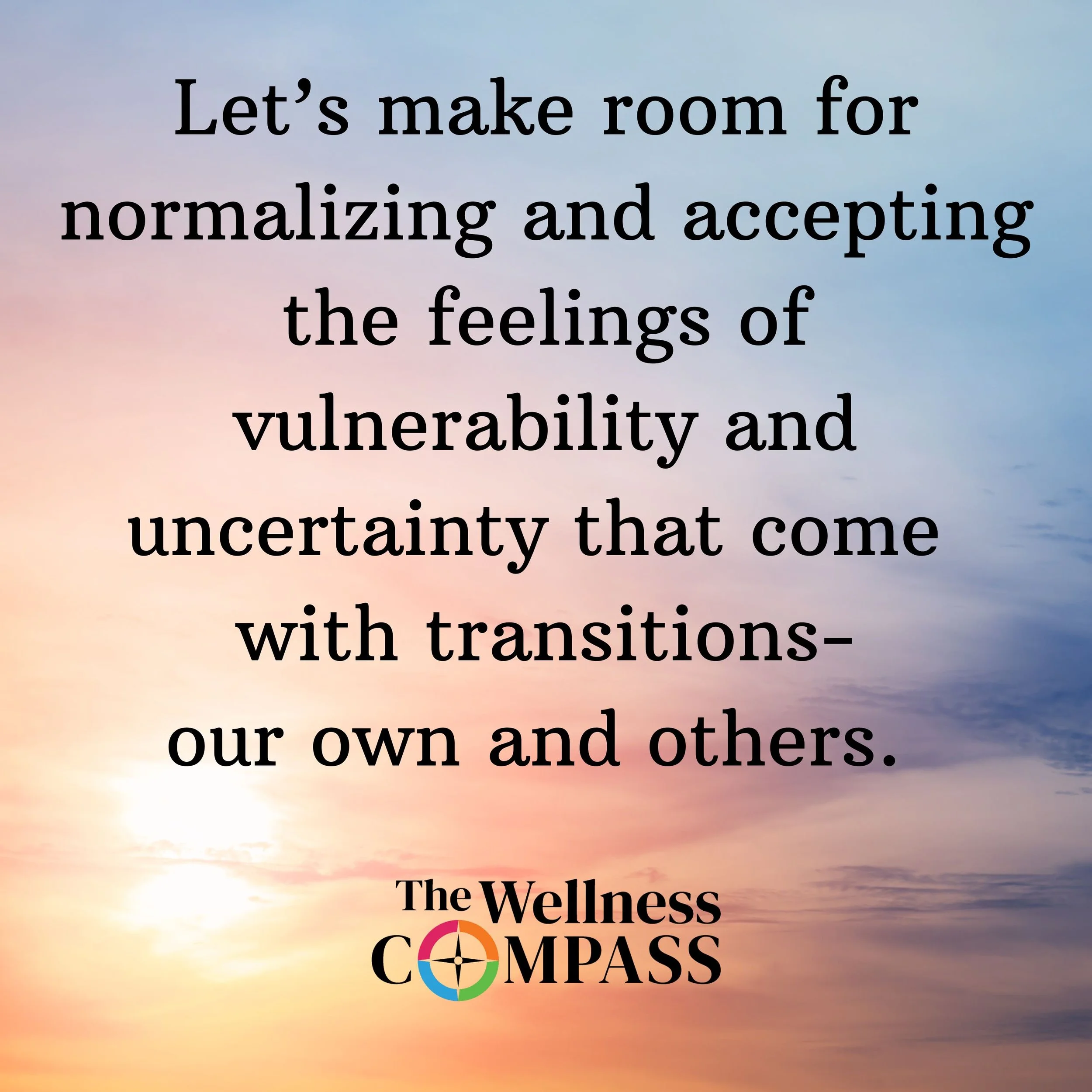Navigating Transitions
The Wellness Compass Initiative is our partner community wellness initative that serves schools, counseling centers, nonprofits, universities, and other community wellness organizations. Each week Holly Hughes Stoner and Scott Stoner, who are both licensed marriage and family therapists, co- write a column for Wellness Compass and we are pleased to share it here on our Living Compass site. There is also a Wellness Compass podcast at www.wellnesscompass.org/podcast.
Welcome back to season five of the Wellness Compass Column and Podcast. We are glad to be back with you.
Fall is a time of transitions, and we have one of our own to share with you regarding the structure of this column. Just as a compass has four points, our new format will feature four essential points of wisdom each week on a different wellness or mental health topic. We think you will find this new structure easier to remember and more practical for application in your life. What remains the same is our mission of our overall non-profit Wellness Compass Initiative, now in its eighteenth year: to enhance mental health and resilience in individuals, families, schools, organizations, and communities. As always, we welcome your feedback and suggestions for future topics you would like to see addressed.
And speaking of transitions, our first column and podcast for this season offers four points for navigating transitions with greater awareness and intention. Whether you or someone else is navigating the start of school transition, or any of a myriad of other changes —such as a job change, coping with loss or a death, adjusting to a new health reality, or a change in a relationship —we hope you find these four points helpful.
Four Points for Navigating a Transition
1. Normalize and accept the feelings of vulnerability and uncertainty that come with transitions--our own and others. The bigger the change, the deeper the feelings, and the longer the adjustment will take. Don't rush the process of adapting to the change or loss.
2. Relationships can be quite tender during transitions. Resist acting out or projecting your feelings onto others when you are in the midst of change.
3. Small daily practices, such as morning routines, regular exercise, mindfulness/meditation, and consistent sleep schedules, can provide stability and comfort when life feels uncertain or in flux.
4. Seeking support from friends, family, and professionals during transitions is an expression of wisdom and strength, helping you process emotions and gain perspective.
Making it personal:
Do any of these points speak to you regarding a transition you are navigating? If so, how might you put that into practice?
Do you know someone who is in the midst of a transition that could use your support?
Subscribe Now to Weekly Words of Wellness:
Click the button below to signup for the e-mail version of Weekly Words of Wellness. This weekly article can be shared with your community electronically and/or used for group discussion.
You can unsubscribe at any time.

